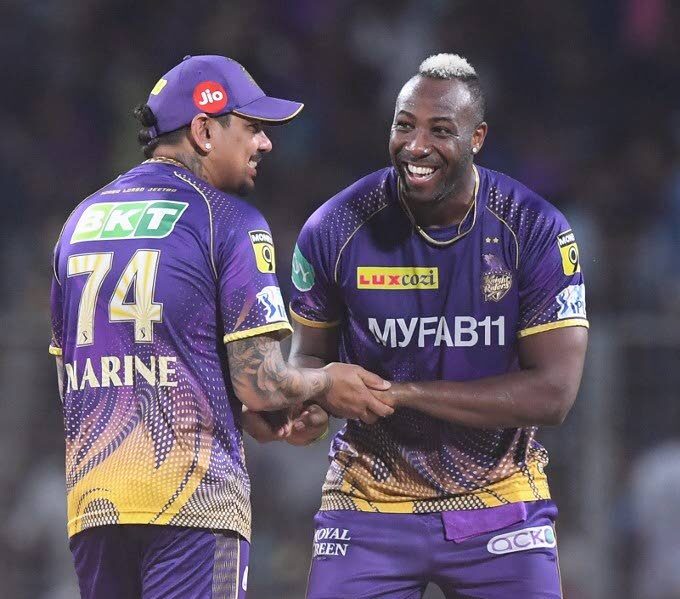The franchise boys and WI cricket

Does Darren Sammy not know that the cricketers with whom he has had in-depth conversations had turned their back on West Indies cricket for a better pay day? Does Sammy believe that these cricketers would suddenly make an about-turn and prefer to play for their country again because of a change of heart?
The cricketers are Shimron Hetmyer, Evin Lewis, Sunil Narine and Andre Russell.
This event could only happen for two reasons: firstly, they’re becoming a bit long in the tooth and are not sure they can retain their places with their franchises, or, secondly, the excitement of their performances is dying and younger international stars are attracting the sponsors. Plus, young Indian cricketers of ability are coming to the fore, and places have to be found for them.
The home crowd is baying for the locals. They’re growing a bit tired of the visitors whose glamour has faded, and are now shouting for their own youth. What has caused this too, is the undeniable fact that the WI stars are no longer playing international cricket; hence they are losing their appeal, if not for all fans, but for some discerning spectators witnessing the waning of their attractiveness.
Consequently, the WI star, well aware of this, will demand to be paid comparable salaries to the Indian Premier League to line up for their home territory. They will see it as their pension, with no allegiance to their country of birth, nor the cricket authorities where they learnt the game and developed their skills to become celebrities.
Sammy had better beware of this situation. For when they do return to give of their experience, it will be for the money they could earn, and not for the sake of the glory of their country, or the improvement and development of its players.

Because of the high financial rewards, they’d rather coach, manage or mentor an overseas franchise team.
Of course, I’m happy for these cricketers who can earn a worthwhile income from the game. However, the youths on the horizon, in their late teens and early twenties, are also trying to make their way in the sport.
When the big names return to play in their declining years, it will set the local youths back a few years. Then again, it is a measure of how good they are and whether they deserve a place in their home team, which will be up to the selectors.
Therefore these former players ought not to be selected just by their known quality of the past, or by their great performances historically, but by their present achievements in all formats of the game.
Sammy does not have a coaching certificate. He sees no problem in that. He does not see any value in having a certificate. Many coaches from my day did not have certificates, and they were fine coaches. There were former cricketers who guided youngsters from their own application of wisdom in their development of knowledge when they played.
The advantage of having a certificate in the present day is simply that the coach would have gone through a number of classes, both practical and theoretical, that would give him the confidence of being aware that what he’s doing is right and backed by a course comprising many examples of varying cricket subjects, thereby giving the student the benefit of a wide range of other people’s experiences.
Hence, it is naive to state, as Sammy did, that: “Don’t think for one minute that I will ever question myself that I’m not fit for that job or this role that I’m in.”
That’s not the point; acquiring a certifictae conveys the confidence of knowing that you have convinced an examination panel that you’re right for the job. There’s a written exam as well as a practical one, plus a lecture.
It breeds self-assurance to actually go out and start coaching. Gathering experience, the neophyte coach gains exposure and acquires the intelligence needed to advance and coach teams, moving onwards from school to club. With wisdom attained as a player, the coach can then progress to first-class cricket.
One can never exhaust the learning curve in the development of the cricketer.
Therefore, one ought to strive for a certificate for coaching, as there are many issues to learn about on that course, plus updates after that, which will widen the scope of someone who wants to coach internationally. If one wants to be a coach and to be self-confident about their ability to do it, then become certified.


Comments
"The franchise boys and WI cricket"